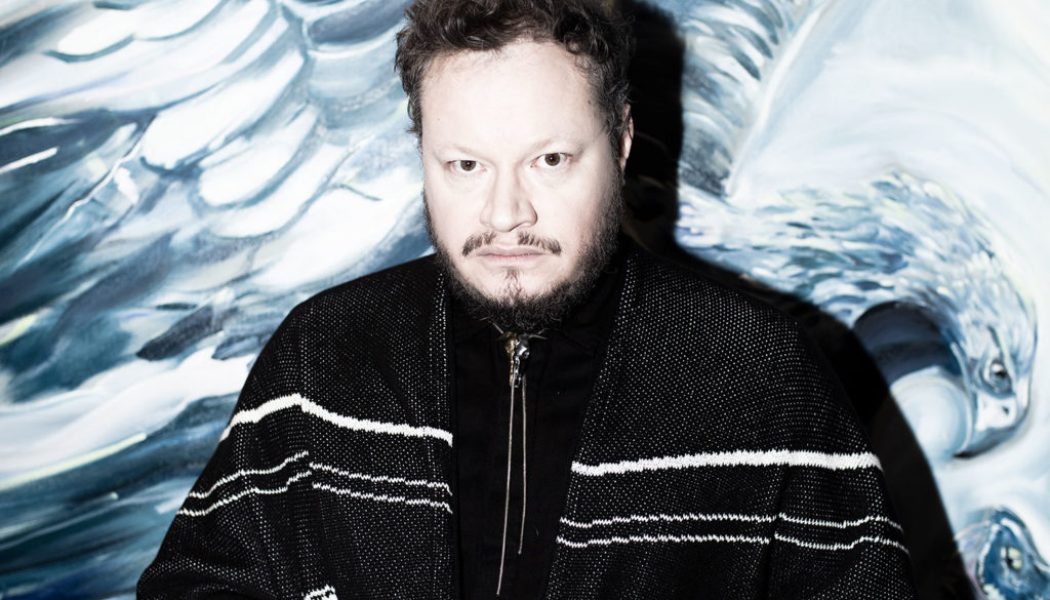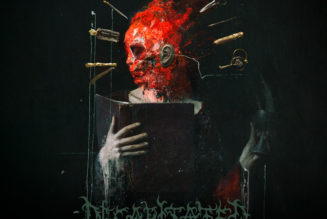
Putting the spotlight on lyrics, vocals and emotions, Leonel García‘s stripped-down versions of ranchera classics such as “La Media Vuelta,” “En el Último Trago” and “Tu Recuerdo Y Yo” on his new album Amor Pasado inject new life to the songs of an older generation.
Paying tribute to the melancholic songs made famous by musical icons like José Alfredo Jiménez and Chavela Vargas, García began recording this album nearly three years ago. “I wanted to do an homage to ranchera music, to Mexican music because it has been a part of my life since I was little,” García tells Billboard. “I don’t sing the genre but still it has influenced my way of singing.”
For Amor Pasado, García recruite an array of artists such as Natalia Lafourcade, Melissa Robles, iLe, María Toledo, and Cyrille Aimee, among others to collaborate with him. The end result is a collection of heartfelt interpretations where emotions are almost palpable.
In a Q&A with Billboard, García talks about his vision for this album and why the featured collaborations make this album even more wholesome. Stream the album here.
Billboard: When did you come up with the concept for this new album?
Leonel García: It was born approximately three years ago when I was talking to Pável Cal, my guitarist and co-producer of this album. I told him that I wanted to do an homage to ranchera music, to Mexican music because it has been a part of my life since I was little. I don’t sing the genre but still it has influenced my way of singing. I’d hear my parents sing these songs and well I wanted to pay tribute and do my own version and it wouldn’t include a mariachi. So, the challenge was to record this music another way, more minimalist, acoustic and it was a long process because I was recording while also on tour.
BB: We typically hear these songs accompanied by mariachi but often times, these songs were born with simply a guitar. Why did you decide to pay tribute to that original version?
LG: With this version, the song becomes, in a way, more yours. There are many artists that inspired me when recording these versions like Caetano Veloso and Chavela Vargas. I saw Caetano in a film by Almodovar singing “Cucurrucucu Paloma” in one scene with just a guitar in hand in front of a small group of friends.
Then I saw the Chavela Vargas documentary where she talks about how she’d sing these songs in an intimate setting with just a pair of guitarists, not a full-blown mariachi that we’re accustomed to seeing. I thought, “Chavela is one of the singers I enjoy most hearing, because she does it in a very intimate way and realized — that’s the direction I want to take.” Obviously, with my style and bossa nova, pop influences but now here’s my interpretation of the music of my country.
[embedded content]
BB: What was the recording process like for Amor Pasado?
LG: It was a beautiful process. Pável would create the arrangements, send them to me, we’d listen to them together — and then I’d imagine how I would interpret the songs. For example, what emotion did I want to exude with my interpretations, my voice range? What type of recording would we do so that it matched the instruments? It was a big challenge.
Then, I had to become involved with these characters full of despair and sadness. Because I had to go into this very specific mood before recording a song, I’d often invite friends over where we’d drink and have deep conversations to have that cantina ambiance. That’s when I’d record.
All the songs talk about tequila and reminisce about a failed relationship where you got your heart broken. That moment when you felt like you could die for love. It’s interesting to go back and search for those emotions because, of course, I’ve gotten my heart broken. Who hasn’t?
[embedded content]
BB: Talk to me about the featured female collaborations in this album.
LG: I’ve always worked well with women. Their sensibility, attention to detail — I love it. And their voices bring balance to my music. Initially, we had only extended an invitation to Melissa Robles, and the experience was so lovely that I thought, “OK, we need more female collaborations.”
I thought that’d I’d reach out to artists that aren’t Mexican or that sing a completely different genre. Such is the case with María Toledo who sings flamenco and iLe, who is more of an alternative artist. I loved what they each brought to the album, the emotion and the way they modernized it. They amplified its message and put heart into it. I’m very happy [with them], and without them, this album wouldn’t be what it is now.
BB: Which two songs define the album?
LG: All of them have a special quality but I’d say one of them is “En el Último Trago” with Cyrille Aimée. It’s an important song because it was one of José Alfredo Jiménez’s songs but I’m singing it with a French artist. But she’s such a universal artist, and capable of singing anything. That made her perfect for this song. With this song, we extend the invitation to people from different countries to listen to Mexican music.
Another one is “Paloma Negra.” It’s a beautiful song and a very painful one too. It defines the feeling and intimacy of this album. Less instruments, more feelings. That’s what this album is about. It spotlights voice and interpretation.
[embedded content]










